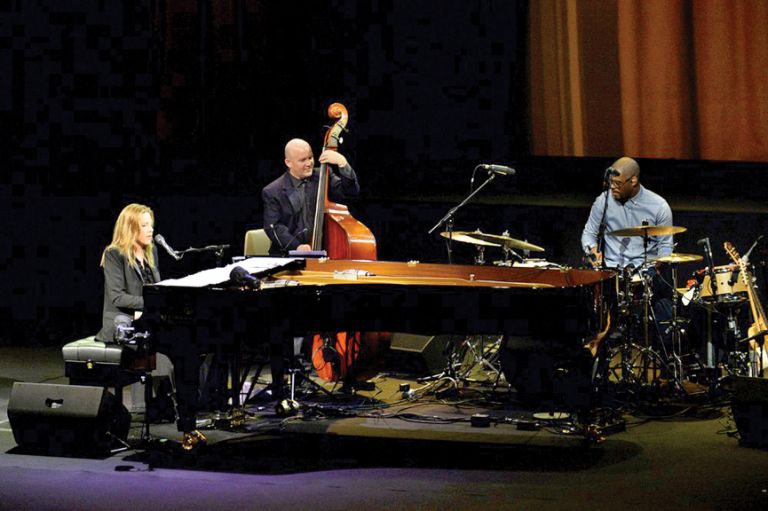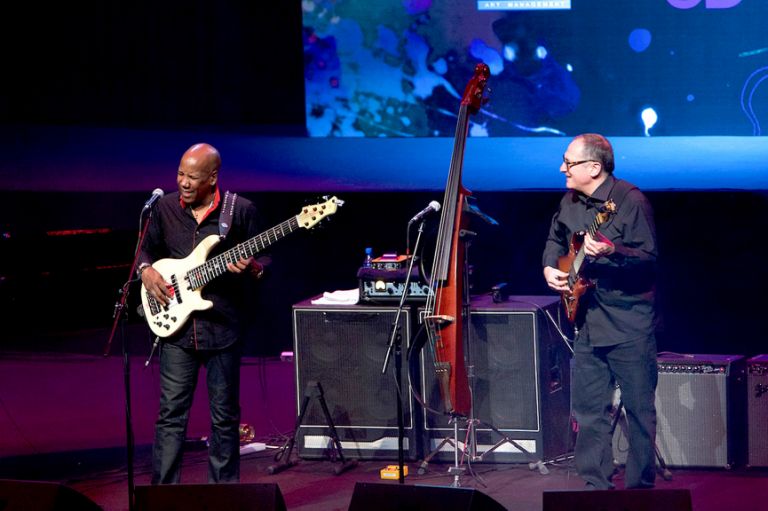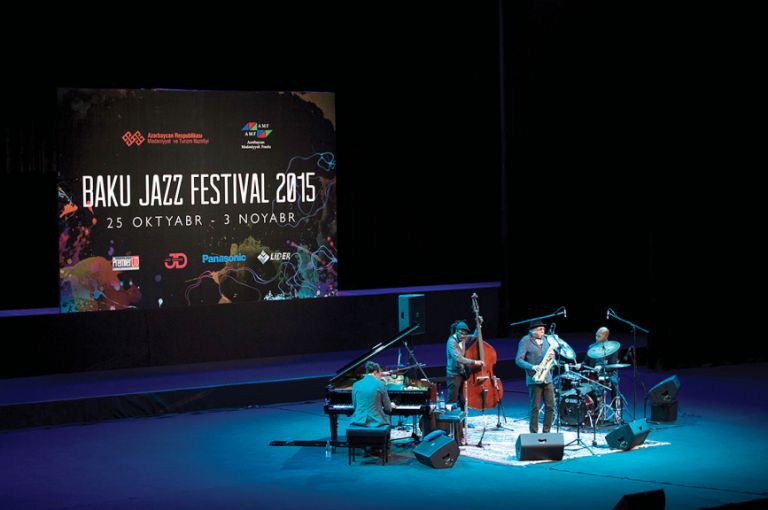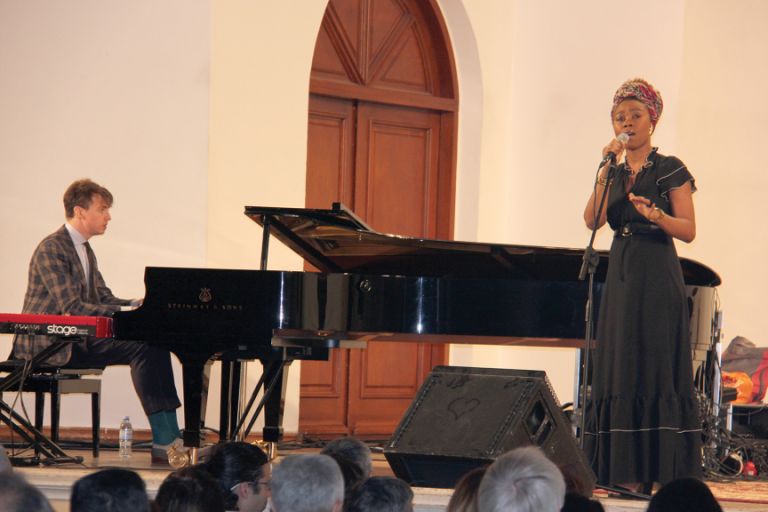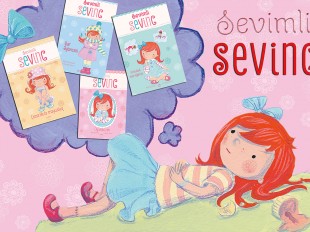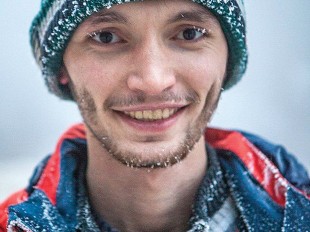Staging jazz festivals in Baku is no rarity, we have grown used to them and today the Baku Jazz Festival is undoubtedly one of the most anticipated events of our cultural life, uniting under one banner many different jazz trends. Organising events like this, however, isn’t easy - besides resources and costs, you also need to present new music by Azerbaijani groups as well as performances by foreign maestros.
Thus, this autumn’s music season was launched by the latest musical project from the Ministry of Culture and Tourism – the 14th Baku Jazz Festival (25 October – 3 November), with support from the Lider TV channel, Panasonic and others. This time around, concerts took place in the Mugham Centre, the Baku State Philharmonia and the Heydar Aliyev Palace, and all nine days of the festival were filled with long-awaited performances.
Velvet sounds from Diana Krall
The blues evening presented by internationally renowned singer Diana Krall was undoubtedly one of the highlights. We Just Couldn’t Say Goodbye, You Call it Madness, On the Sunny Side of the Street, the warm, lyrical bossa novas - Quiet Nights of Quiet Stars, So Nice, The Look of Love, Elton John’s hit Sorry Seems to be the Hardest Word, songs reminiscent of the hymn-like sounds of the Beatles – Wonderful, Fly Me to the Moon, East of the Sun, some performed in oriental style - Boulevard of Broken Dreams, But I Don’t Know Enough About You and ‘Deed I Do.
I also managed to hear Diana Krall in concert at the Tbilisi Jazz Festival, which coincided with the one in Baku. At both concerts, Krall created an incredibly cool and calm jazz atmosphere, gracefully slipping from one number to the next. Her album, Wallflower, which formed the backbone of both concerts, was performed more dynamically live - the elevation provided by the symphony orchestra was gone - and alternated with hits from her previous albums to audience delight. Accompanying her on stage were Dennis Crouch (bass), Anthony Wilson (guitar), Karriem Riggins (drums), Stuart Duncan (violin) and Patrick Warren (keyboard).
In truth, the Baku public had been waiting for this performance for a long time - since Krall achieved global respect for her exquisite blues style and elegant playing. Her style is clear and minimalistic, avoiding lengthy, elaborate musical phrasing. Here the lyrical, cool-jazz themes are direct and unobtrusive. Incidentally, the shortened phrases and soft, velvety vocal style were inspired by her self-declared jazz idols: Nat King Cole, Carmen McRae, Rosemary Clooney and others.
The Baku Jazz Festival is undoubtedly one of the most anticipated events of our cultural life
Jazz & silent cinema
Jazz aficionados get special satisfaction from discovering a natural contrast in events, when they switch from a chamber or serious funk environment to more focused projects, combining visual and composed elements. This was the second day, which featured an international group led by composer and pianist Salman Gambarov (Azerbaijan), composer and saxophonist Rezo Kiknadze (Georgia), double bassist Mark Tokar (Ukraine) and percussionist Klaus Kugel (Germany). A silent film by Georgian director Kote Mikaberidze, shot in 1929, was entrusted to the skilled hands of these four acclaimed musicians.
In my honest opinion, sounding a silent film that is already teeming with clear stereotypes of the Soviet era and that already has a very striking musical accompaniment (in the restored version by distinguished Russian composer Oleg Karavaychuk) is no easy task. The subtle but sometimes exaggerated caricatures of bureaucrats and the idiocy surrounding them are expressed through lively music with certain jazz elements: the double bass riffs reflect the general background and bureaucratic regime, the galloping dance theme expresses combat, and the sentimental and ironic waltz-like episodes characterise absent-minded female characters. And here, the second reproduction of Mikaberidze’s masterpiece was brought to life by the four improvisers with essentially different approaches. Softness faded into the background to be replaced by a denser sound and the general tone became doubly expressive with separate bursts of descriptive sound from Rezo Kiknadze’s saxophone.
This project to fuse silent cinema, improvised jazz and composition was not new to Azerbaijani culture. It was first done to great effect as part of the Latif project, co-authored and improvised by members of the Bakustic Jazz group at the New Music from the Last Century concert in Baku in 2001, another highlight in the history of Baku jazz.
However, Bakuvians had been deprived of the opportunity to hear the second project involving composer Salman Gambarov, one of Azerbaijan’s leading jazzmen, as the premiere performance was at the Sounds of Silence festival in Tbilisi in 2013 before an appreciative audience. Baku fans of Bakustic Jazz had waited impatiently. So its presentation at the Baku Jazz Festival was a very significant event - this was a premiere for the Baku public, for which separate thanks to the organisers!
Jazz, jazz & more jazz
The performance of another historically notable headliner, the group Fourplay, gave a more festive nuance - their 25th stage anniversary gave an impetus to the concerts in Baku and Tbilisi, celebrating the landmark with hits from earlier and more recent albums. With their beautiful, somewhat meditative music, subtle mixtures of traditional piano with electro, and the free structure of fusion with smooth jazz, the legendary group had long ago attracted admirers, including among the Baku public.
I still enjoy reflecting on the day that the legendary Bob James, Nathan East, Harvey Mason, Larry Carlton and musicians of the great Smoothie fusion quartet performed at the Heydar Aliyev Palace. I love it when a festival programme gradually builds up, leading audiences smoothly towards the finale, which, in this case, was the performance of Charles Lloyd. Listening to his wonderful improvisations, full of flight and depth and brilliant technical and ensemble mastery, one felt inspired by simply spending time alone with a great musician.
Ethno-jazz
It isn’t surprising that ethno-jazz, currently trending all over the planet, was represented at the Jazz Festival by a whole generation of jazzmen. The remarkable concert by Savab, a group led by Honoured Artist Jamil Amirov at the Rashid Bebhudov Song Theatre, kicked things off and attracted a large audience. Through a long performance, Amirov demonstrated his artistry and incredible loyalty to his chosen theme of ethno-jazz blended with mugham and folk.
Amirov’s music has a stable, classical style influenced by international and Azerbaijani classical music, and this is reflected strongly in the manner, structure and texture of his pieces. This organic style, sitting harmoniously between ethno and traditional jazz, was sensitively perceived by his young partners on stage – bass guitarist Ruslan Huseynov, as well as Elvin Bashirov and Tofiq Jabbarov on percussion; their support helped create the group’s meditative sound, enticing the listener with original thought and a subtle sense of style.
The concert by Elchin Shirinov’s jazz trio – with double bassist Andrea Di Biase and percussionist Jon Scott - was memorable for its interesting compositions and Azerbaijani folk offerings. The young trio has been together for over two years, performing at festivals in Norway, France, the USA, Greece and more. The group’s general style leans more towards contemporary music – it is compact and acoustic - although it also has elements of ethno-jazz, which appeared in the festival in a series of improvisations on the folk song Black Eyebrow Liner and on the male choir from Uzeyir Hajibeyov’s musical comedy O Olmasın, Bu Olsun.
Azerbaijani pianist Emil Afrasiyab delighted with a lengthy ethno-jazz programme based on the music of Fikret Amirov and Arif Melikov, as well as his own compositions. In contrast to Elchin Shirinov’s acoustic, academic jazz with ethno tones, Afrasiyab varied his programme by including national folk musicians.
Symphony & Pops
Any festival is of course an opportunity for audiences to learn of new names and frontiers in the arts. The 14th Jazz Festival certainly left the Baku public satisfied with its many festive events. However, from a personal perspective, the victory laurels go to the concert by the Azerbaijan Symphony and Pops Orchestra in so far as its participation at the Baku Jazz Festival was a novelty, filling the long absence of a large pops ensemble.
This absence is a symptom of a general decline in jazz culture, since the orchestra is the cradle of any instrumental or vocal solo and provides vital experience for any novice jazz musician. Having re-introduced itself in December 2014, over the last year the Symphony and Pops Orchestra has performed at various concerts, including the anniversary concert for Vagif Mustafazadeh and a concert by singer Fidan Hajiyeva.
Her style is clear and minimalistic, avoiding lengthy, elaborate musical phrasing
Attending the concert, performed on the compact stage of the Song Theatre (which didn’t quite do justice to the size of the group), I enjoyed listening to the varied repertoire that included a range of hits. The festive sounds of Night in Tunisia by Dizzy Gillespie, Closely Dancing by Arturo Sandoval and Festival de Ritmo by Dave Weckl blended with works by Azerbaijani artists. The compositions based on lyrical hits such as Be My Love and Besame Mucho introduced the audience to solos by Fidan Guliyeva, whilst young pianist Elbey Mammadzade performed in Qara Qarayev’s gallant music from the film Человек бросает якорь (A Man Drops Anchor).
I think the great work being done by the two brilliant heads of the orchestra – artistic director, composer and band leader Salman Gambarov and arranger and director Azer Allahverdiyev - will be very fruitful.
Jazz is today very modern and multi-layered in its forms. Its rebirths, many facets and styles sometimes confuse audiences and experts alike when it comes to definitions. Jazz that borders on pop, as well as lighter fusions with other genres, can have a greater effect on the listener and give greater artistic pleasure. This was true of the final concert at the Baku Jazz Festival by Cameroonian singer Ntjam Rosie, performed in a soft, smooth soul style. Rosie’s soul is unique – not loud and expressive but delivered in softer tones, and free flowing, which you would hardly relate to either pure orthodox jazz or its offshoots. The group’s pianist stood out for his sensitive accompaniment of the singer; both complementing one another quite organically.
So what remains to be said? Of course once again to thank the main organiser, the Ministry of Culture and Tourism, and to wish that their grand plans for the future will be matched by their resources, and finally to express our (the public’s) hope that these concerts will become more frequent events!
About the author: Turan Mammadeliyeva is a jazz and mugham expert and frequent contributor to Visions of Azerbaijan.
